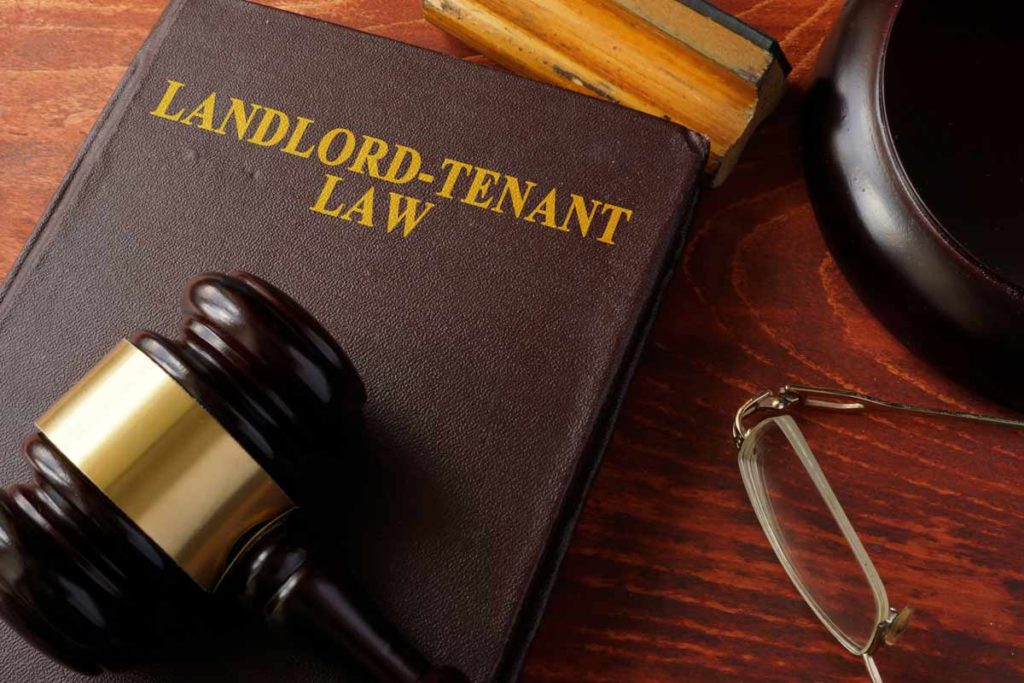A past-due utility bill can be a point of friction between landlords and tenants. Is the landlord responsible if the tenant vacates the rental property and leaves the outstanding utility bill? The rules for who is responsible for the utility bill can vary by the type of account, company, and region where you live.
What Utilities Do Renters Pay?
The typical utilities found in an apartment include:
- Electricity
- Garbage
- Gas
- Internet and cable
- Sewage
- Water
Cable and internet or security fall under “non-essentials” and usually fall to the tenant. Responsibility for the rest of the utility bills can vary.
Before asking who is responsible for unpaid utility bills, you must go back to the lease agreement. This legally binding contract should carefully define landlord/tenant responsibilities surrounding public utility services.
Under California law, landlords must supply access to utility services at their rentals and cannot shut off these services if the tenant doesn’t pay rent. State laws don’t define who pays for these services. The lease document should cover who is responsible for setting up and paying for these utility company services.
Some landlords pay some or all of the utilities themselves, rolling the costs back up to the renter. In these instances, the landlord must:
- Have fair pricing for these services, meaning you cannot markup utility prices to make a profit. You can charge a small administrative fee.
- Provide tenants with a breakdown of how much they’re paying for their monthly utilities. This becomes more complex when tenants share an apartment complex meter.
- Still provide utilities to the tenant, even if you, as the landlord, fail to pay for the service. In these cases, tenants have the right to protect themselves from losing utilities by setting up their own account to pay the bill and restore services.
- Accommodate tenants who have medical issues with at-home equipment. These tenants often qualify for a reduction in utilities. It’s usually easier for the property owner to make an exception and allow these tenants to set up their own utility accounts to take advantage of these reduced costs.
These complexities apply to property owners who prefer to allow tenants to handle their utilities. Again, defining what utilities renters pay versus what the landlord handles must be defined and understood upfront before the lease is signed.
But what happens when the utility bills are late or unpaid?
Who is Responsible for Unpaid Utility Bills

Who is responsible for unpaid utility bills depends on the following:
- What utilities do renters legally pay as defined in the lease.
- Whose name is on the utility bills?
If your renters pay you and you pay the bills, you are responsible to the utility company. This is true even if the renter fails to pay you. Many times, the landlord ends up pocketing the losses and moving on. Unless it’s the water bill.
The California legislature has specific rules governing how to handle electric and gas meters, outlining rules for what the landlord must do if there are shared meters between units. Water and sewer are not included in these laws, so it’s up to the lease agreement to define who pays. If the water isn’t paid, it can be disconnected.
A water shut-down can permanently damage pipes in the winter, so it is in the landlord’s best interest to cover these utilities. Since landlords are required to provide a habitable living space by law, most cover water, sewer, and trash themselves and recoup the cost in the tenant’s rent.
ConnectCalifornia states, “The landlord can ultimately be held responsible for unpaid water bills for rental units in California. Unlike other utilities like electric and gas, the water company is often a city-owned operation, and thus may come after the property owner for unpaid dues when a tenant has moved on.”
Can a Landlord Sue a Tenant for Unpaid Utility Bills?

SF Gate spells out the laws governing property owners’ rights when a tenant doesn’t pay a utility bill that they are responsible for under the lease agreement. They state, “In a situation in which a tenant doesn’t pay his utility bills, a property owner is not only exempted from any penalties from the utility company, but may also have the right to file a lawsuit in order to ensure compliance.”
They’re referring to a 1996 California law that says, as long as the lease defines the tenant will pay, the landlord is in no way responsible. They say, “If a renter does not cover the costs of the utilities, the utility company has the right to seek out unpaid compensation against the tenant using all legal means necessary.”
Now, here’s where it gets complex. Say the renter shares utilities with a landlord under one metering system and fails to pay. The property owner can sue the tenant for payment and even potentially evict them. However, the landlord may not use the security deposit to compensate themselves for unpaid utility bills. California state law says a deposit is designed to compensate for unpaid rent, fixing property damage, or cleaning the unit after a tenant leaves a mess.
Tenant Planet offers California property owners a turnkey solution for managing their investments. Talk with our team about how our proven systems and solutions can help your business.
Q&A
Ultimately, California renters pay all of their utilities. These fees are either rolled into their monthly rental price or handled separately by the individual. The typical utilities that a tenant may handle include electricity, cable and internet, and gas. The property owner often pays sewage, water, and garbage bills. However, the lease agreement defines the responsibility of who pays for all of these bills.
Except for the water bill, unpaid utility bills are the responsibility of whoever’s name is on the service. If the tenant fails to pay the gas or electric bill and the bill is under their name, the landlord is not responsible under California law. The water and sewage bills are handled by local municipalities, who may hold the landlord accountable if the tenant fails to pay—no matter whose name is on the bill


